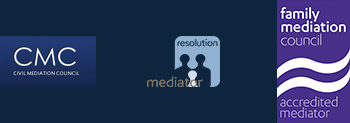In this short article we intend to expose some of the relative advantages and disadvantages of litigation and mediation in the context of civil disputes. At Hampshire Mediation we understand that mediation may not be the right approach in all circumstances, but we firmly believe in its advantages over litigation in most cases.
The wishes of the Participants
One of the most important and most often misunderstood features of mediation is its voluntary nature. This is absolutely fundamental. No-one can be forced to go to mediation, and to do so would be a waste of time as the reluctant participant would be unlikely to enter the process in the right frame of mind. Mediation is a process of principled negotiation, and that requires not only a degree of willingness to settle a dispute, but a recognition that there will need to be some give and take. Although the courts can and do direct stays of proceedings while the parties to the action explore the options for mediation, if a party is adamant that mediation is not for them then it can’t proceed. Of course, the judge may take that into account in delivering judgement, as the claimant in PGF II SA v OMFS Co [2013] discovered to his surprise and to his cost. There is more on this interesting case in our blog post here.
One of the most common barriers to entering mediation is an unfamiliarity with the process. People may think that the mediator will impose their own ‘verdict’ on the parties, or that they will be forced to agree to something against their wishes. Nothing could be further from the truth and at Hampshire Mediation we are delighted to assist people parties in coming to an understanding of the mediation process, and determining whether or not it’s right for them.
By contrast, people can of course be obliged to take part in the court process, and this happens all the time.
Inclusivity
The second feature is related to the first – inclusivity. Mediation is not about deciding who is right and who is wrong. It is not a trial and there are no winners and losers. It is about communicating, being understood, understanding the positions of others, and working together to solve a problem. It is the working together part that is key. The mediator will ensure that each participant has the opportunity to speak and to be heard. Each will contribute to the discussion and to the eventual solution and will do so in an atmosphere that is calm and businesslike.
Confidentiality
People sometimes have a concern that their ‘opponent’ will use the mediation session to uncover information and then use it against them, either in court proceedings or elsewhere. That is not so. Before beginning the mediation process each participant is obliged to sign a confidentiality agreement in which they undertake not to repeat anything that is said in the mediation session. Similarly, they acknowledge that the process is without prejudice. That means that nothing that a participant says during the mediation can later be relied on in any legal proceedings.
Speed
Anyone who has ever entered into any form of litigation will tell you that it is not a fast process. The exchange of correspondence between the lawyers can go on for months, and following that the delay before the case is actually listed can be significant. Mediation can be arranged at quite short notice – even with a few days. That is not to suggest that it is a rushed process. On the contrary. The mediator will take steps to ensure that each participant is happy to have an early meeting, and that each understands the process clearly. If everyone is comfortable and wants to go ahead quickly, that can certainly be arranged.
If you have any further questions then please don’t hesitate to give us a ring and we will be pleased to help you.


